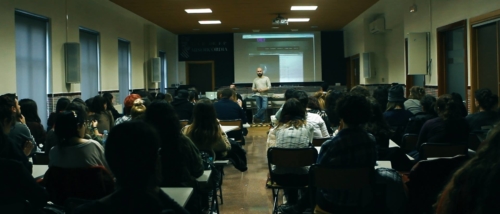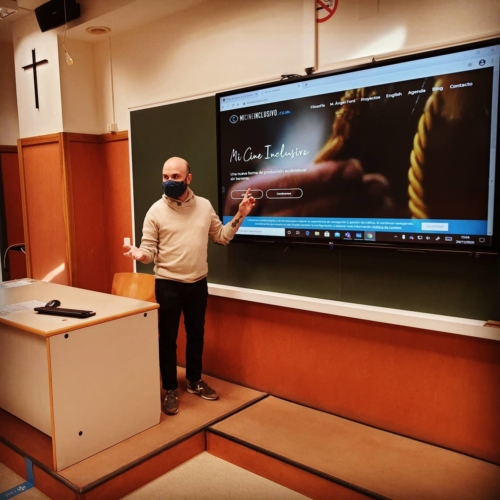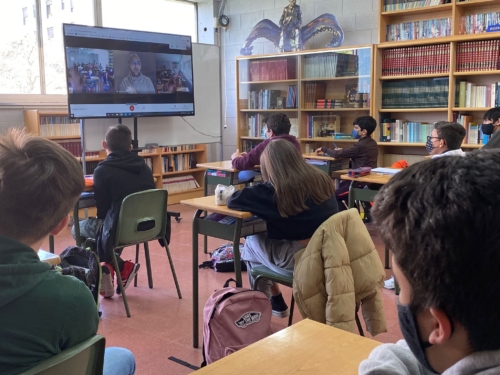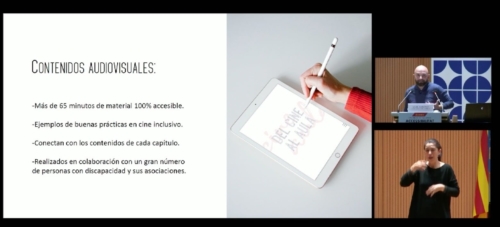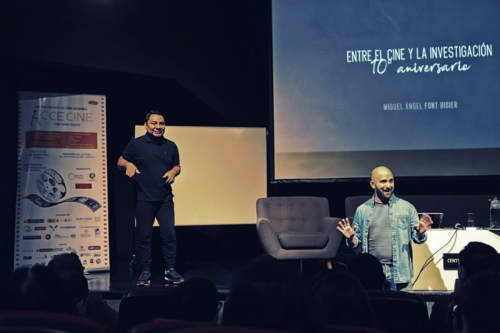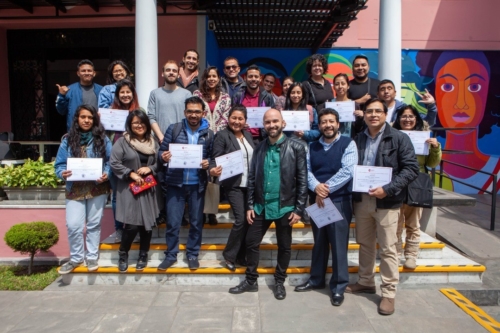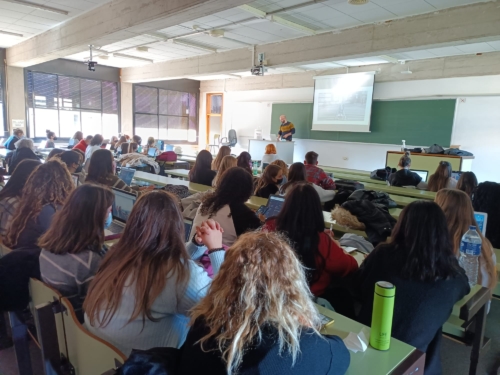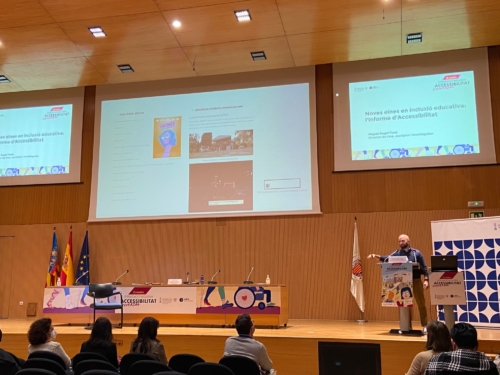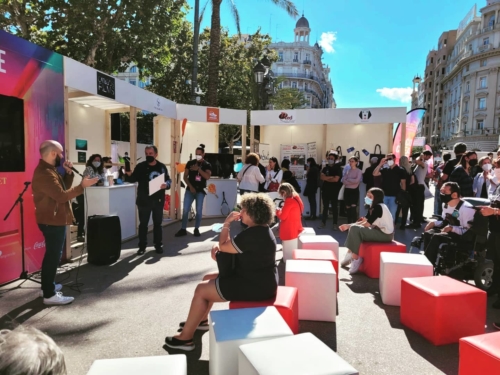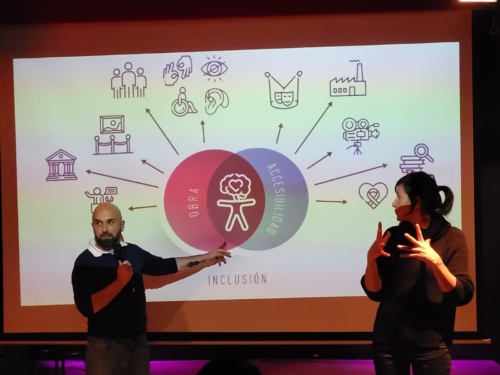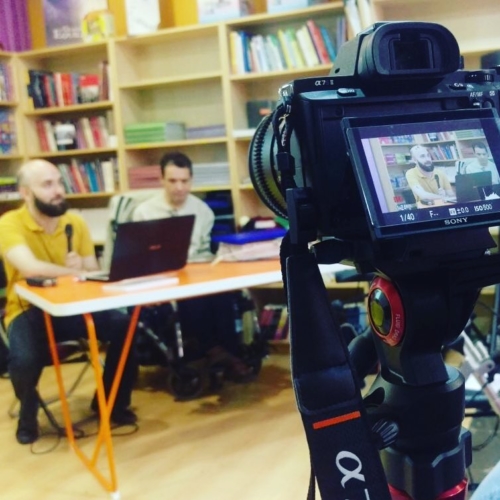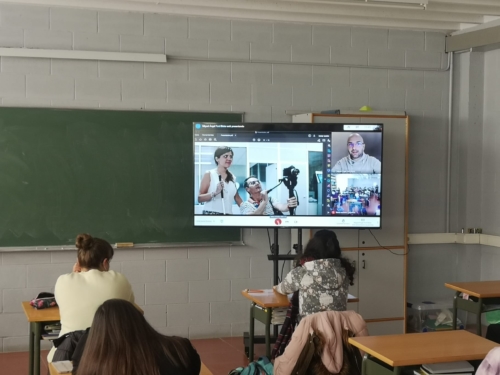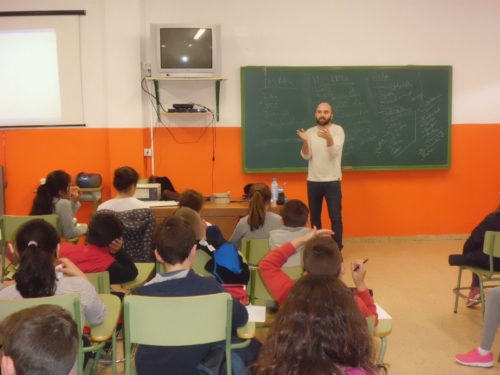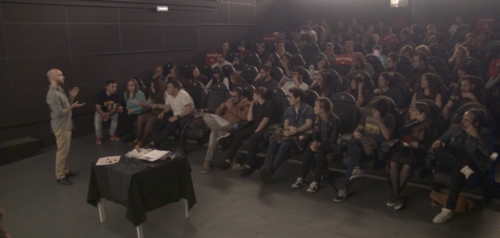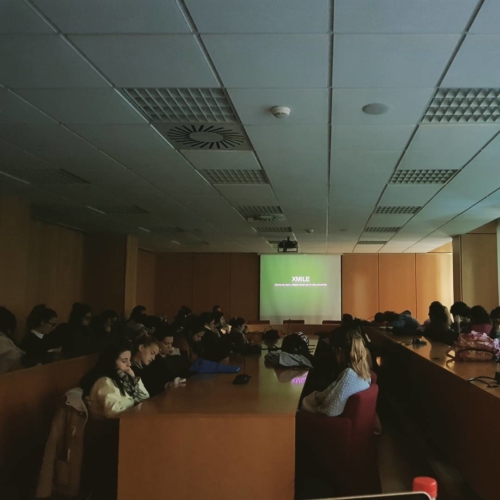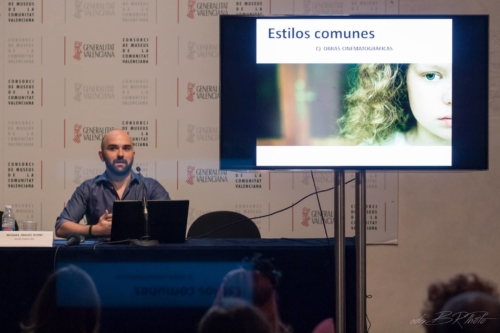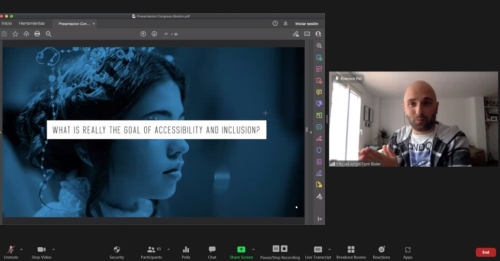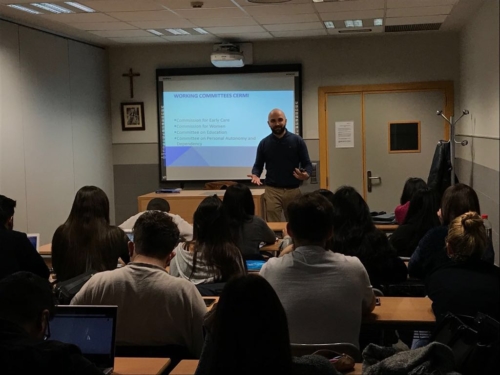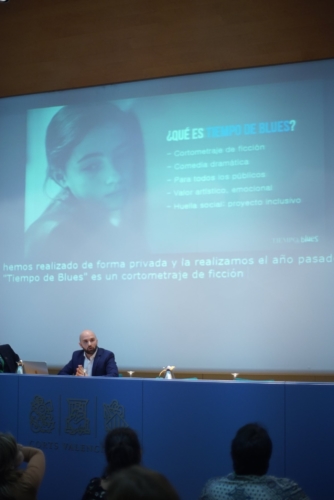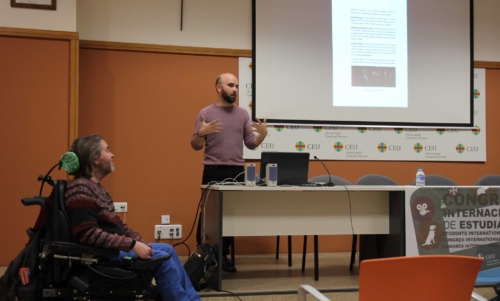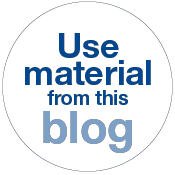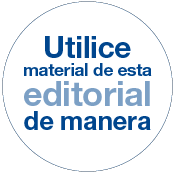If you are interested in any course, do not hesitate to write to us at hola@micineinclusivo.com or fill out our contact form.
Etiqueta: methodology
Personalized online mentoring on media accessibility and inclusion

Do you have a project and do not know how to integrate accessibility? Do you want to carry out an inclusive proposal, but you lack information? Book your personalized online mentoring on media accessibility and inclusion!
If you are interested in this proposal, do not hesitate to write to us at hola@micineinclusivo.com or fill out our contact form.
Continuar leyendo «Personalized online mentoring on media accessibility and inclusion»
Inclusive Multimedia Production Course

We present to you this course, constructed to familiarise you with what must be done to nurture a more inclusive world. Thanks to our program, we will review a significant amount of content so you can learn to utilise methods in your day to day to join the change from the accessible to the inclusive.
If you are interested in this course, do not hesitate to write to us at hola@micineinclusivo.com or fill out our contact form.
English trainings and mentorships about inclusive arts, education, culture and media

Online and On-site courses on cultural accessibility in relation to inclusion and artistic education.
If you are an individual willing to build a more inclusive world, this is for you!
Modeling Accessibility and Inclusivity through film-making
Contributed by Elena Carrión Guerrero (Senior Lecturer, Spanish, Department of Romance Studies, CAS, at the Boston University).
1 – Introduction
«In my spring class, LS 306 Spanish through Translation, I was fortunate to receive a grant from the Hub Course Enhancement fund to invite Miguel Ángel Font Bisier, the Spanish filmmaker, screenwriter, and researcher, to speak with my students about accessibility and inclusivity in film-making.
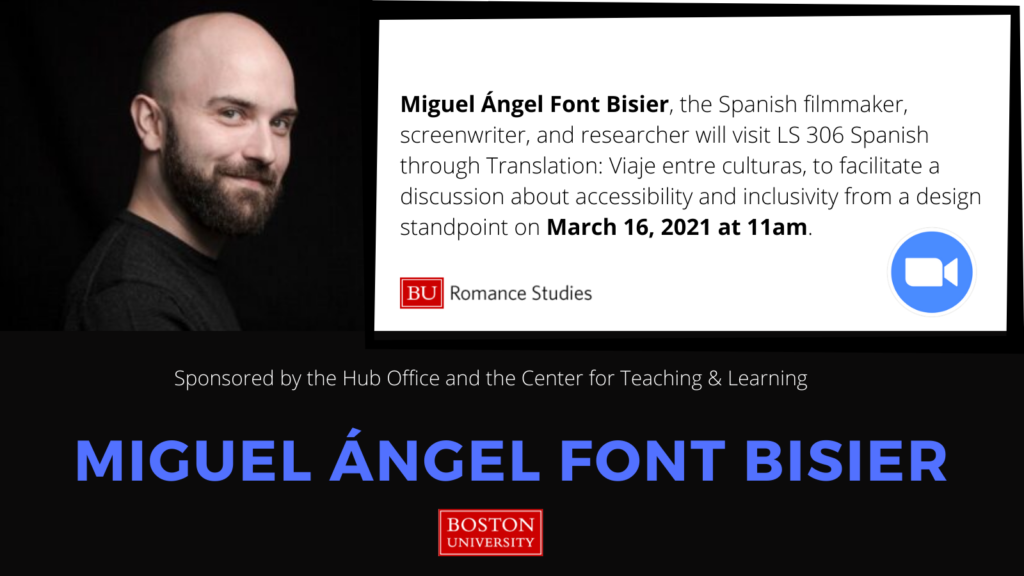
The conversation, entirely conducted in Spanish between my students and our speaker, was extremely inspiring. Miguel Ángel initiated his presentation, engaging the students from the very beginning, by asking them why there was still so much to work on to achieve inclusion in our society. He then presented the different models we live in (traditional, hybrid, or inclusive) drawing on different examples not just pertaining to the cultural world, but also to the fields that students are majoring in.
Continuar leyendo «Modeling Accessibility and Inclusivity through film-making»
